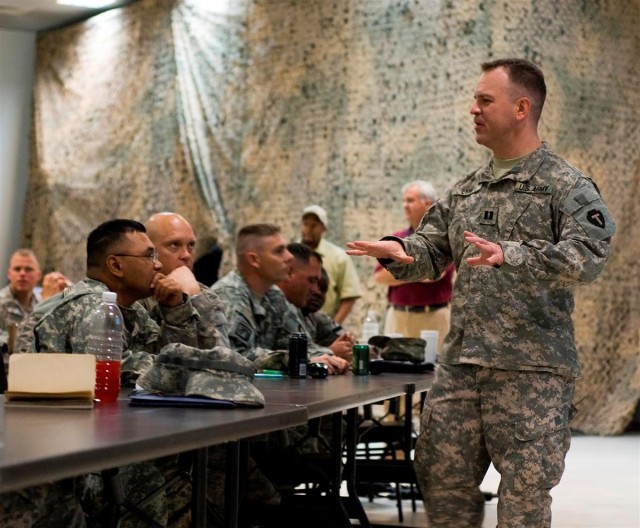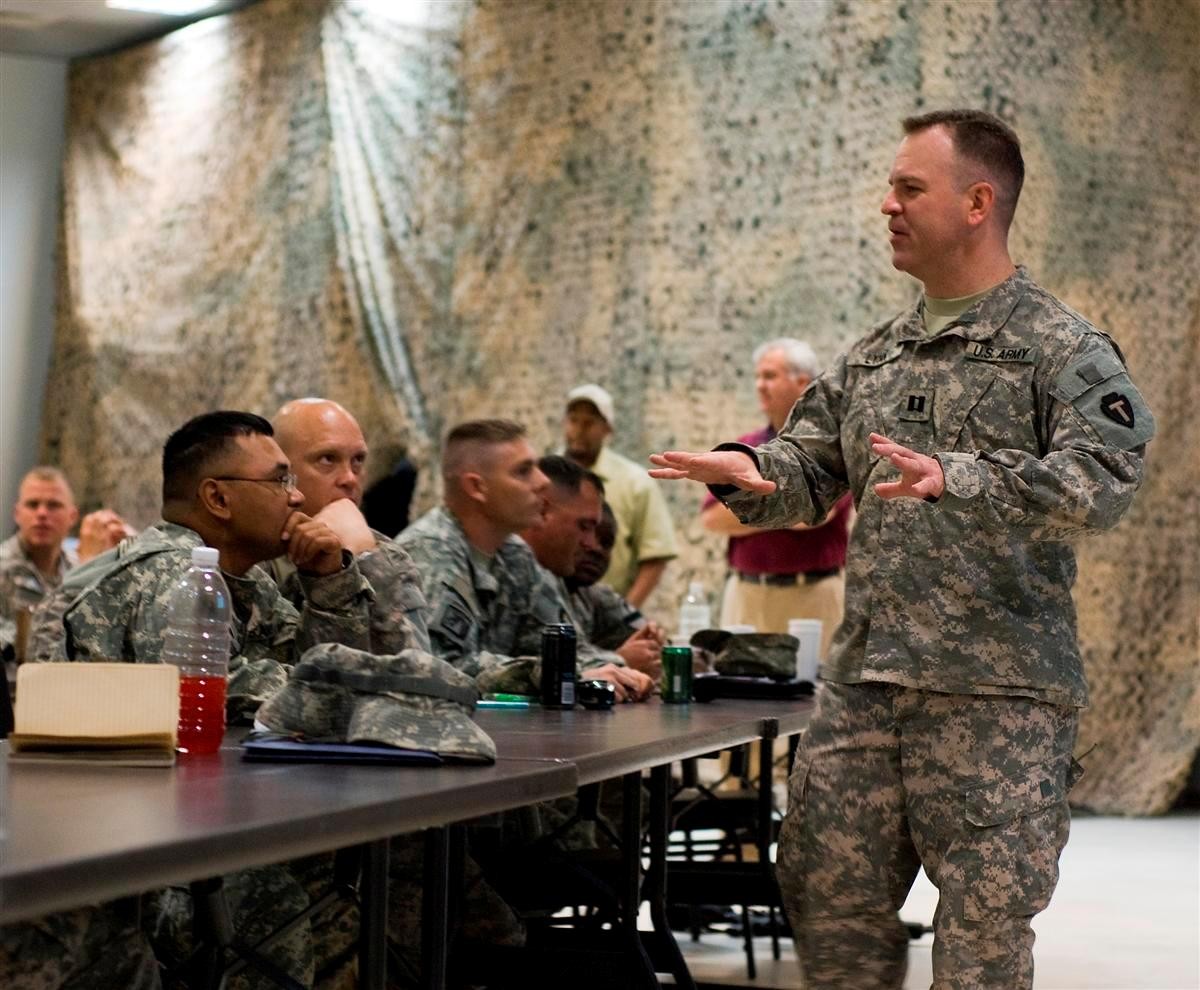
JOINT BASE BALAD, Iraq - Approximately 80 Soldiers from across Iraq, Afghanistan and the United States met for a biannual medical logistics conference here May 19-21.
The conference was hosted by the Texas Army National Guard's 111th Multifunctional Medical Battalion and was designed to give medical logisticians a chance to network and discuss future operations in Iraq.
The fate of excess medical supplies in Iraq, as the U.S. responsibly withdraws troops from Iraq during the next year, was among the topics of discussion. In February, U.S. President Barack Obama called for the number of troops in Iraq to drop to between 50,000 and 35,000 by August 2010. There are about 135,000 troops currently in Iraq according to an official spokesman for the Multi-National Corps-Iraq.
"We will see significant changes in the (Iraq Theater of Operations), both at the end of the year and into the beginning of the next year as a result of the responsible draw down," said Lt. Col. Anthony J. Lopiccolo Jr., the officer in charge of logistics for the Task Force 44 Medical Command, the unit responsible for the oversight of medical care for all of Iraq at Corps-level and above.
Lopiccolo said that units should review their stock of medical supplies and decide what supplies they have little use for. These items, he said, should be returned to the U.S. Army Medical Material Agency for reissue-possibly to units in Afghanistan.
"If we're going to start downsizing people," Lopiccolo said, " we need to also start downsizing material."
"We're still trying ot be good stewards, save Army money, save taxpayers money," said 1st Lt. Christopher R. Alviar, the support operations medical logisitics officer in charge for the 111th MMB. "We can't just be giving everything away, destroying everything. There has to be a process that we all need to follow."
Other topics of discussion at the conference included the state of Iraqi medical logistics, pharmaceutical operations, optical fabrication (eyeglasses), medical maintenance and theater blood operations.
The conference also included a tour of JBB's medical logistics warehouse, which is run by the 111th MMB and is the main supply hub for medical supplies in Iraq. The 111th MMB is tentatively planning another conference in the fall, Alviar said.

Social Sharing